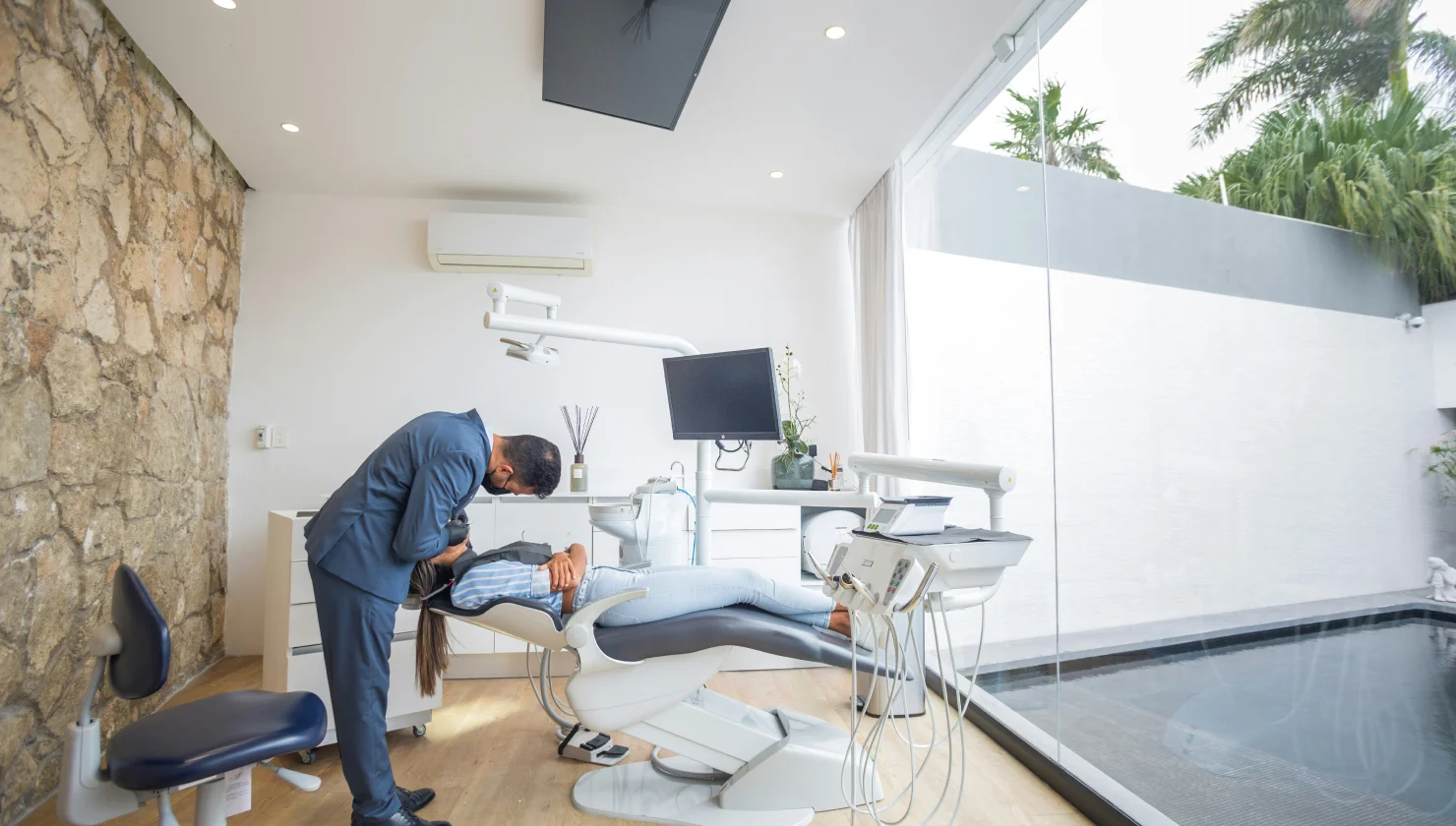About Dental Ozone Treatment Services
At Dental Wellness Clinic, we have integrated ozone therapy as a safe, non-invasive, and highly effective treatment within our holistic approach.
Its applications and benefits include:
- Reversal of incipient cavities without the need for turbines or drills, ideal for children or patients who are sensitive to noise.
- Deep disinfection of cavities and root canals in dentistry and endodontics, eliminating germs without systemic antibiotics.
- Management of inflammation and mucosal pathologies: canker sores, herpes, stomatitis, mycosis and prosthetic lesions.
- Advanced periodontics: treatment of gingivitis, periodontitis and periodontal pockets through disinfection and tissue regeneration.
- Support in surgery and implantology: haemostasis, pre- and post-operative disinfection, acceleration of healing and dental reimplantation.
- Relief of orofacial neuralgia thanks to its analgesic and pain-modulating properties.
Key advantages:
- Faster and more effective wound healing than with conventional pharmacological treatments.
- Highly effective against bacteria, fungi and viruses, reducing the need for antibiotics.
- Multiple clinical applications in a single device, without causing discomfort to the patient.
- Immediate and long-lasting effect, reinforced with our nutritional recommendations for comprehensive care.
With dental ozone therapy, we raise our biocompatibility and well-being protocols, taking care of your smile from the first contact to complete recovery.
Frequently Asked Questions
Is ozone treatment painful?
No. The application is quick, without needles or lasers, and is performed with gentle devices that are well tolerated by patients.
How many sessions do I need?
It depends on the condition: for incipient cavities, 1–2 sessions are usually sufficient; for periodontitis or lesions, 3–5 sessions at 1-week intervals.
Can it replace the use of antibiotics?
In many cases, yes, because ozone eliminates bacteria, fungi and viruses locally, reducing or avoiding the use of systemic antibiotics.
Are there any contraindications?
It is safe for most patients. It is avoided in cases of severe hyperthyroidism, first trimester pregnancy or known allergy to ozone.


